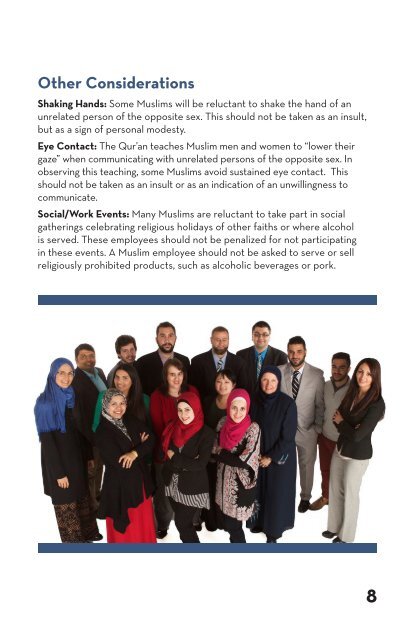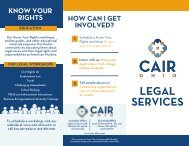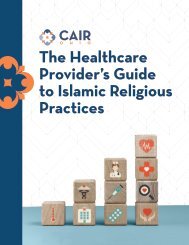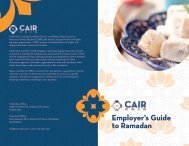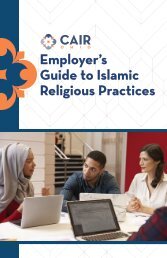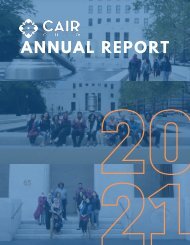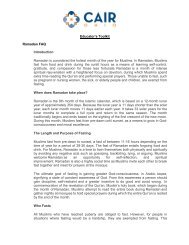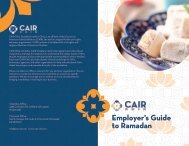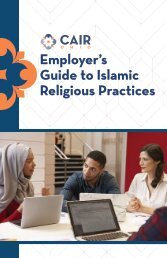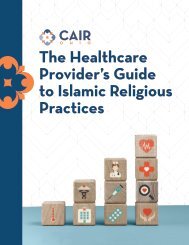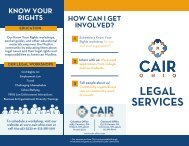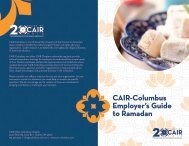CAIR-Ohio Employer's Guide to Islamic Religious Practices
This is a guide for employers that explains some basic Islamic religious practices including dress guidelines, holidays, prayer timing, and fasting, along with some suggested accommodations for employees.
This is a guide for employers that explains some basic Islamic religious practices including dress guidelines, holidays, prayer timing, and fasting, along with some suggested accommodations for employees.
Create successful ePaper yourself
Turn your PDF publications into a flip-book with our unique Google optimized e-Paper software.
Other Considerations<br />
Shaking Hands: Some Muslims will be reluctant <strong>to</strong> shake the hand of an<br />
unrelated person of the opposite sex. This should not be taken as an insult,<br />
but as a sign of personal modesty.<br />
Eye Contact: The Qur’an teaches Muslim men and women <strong>to</strong> “lower their<br />
gaze” when communicating with unrelated persons of the opposite sex. In<br />
observing this teaching, some Muslims avoid sustained eye contact. This<br />
should not be taken as an insult or as an indication of an unwillingness <strong>to</strong><br />
communicate.<br />
Social/Work Events: Many Muslims are reluctant <strong>to</strong> take part in social<br />
gatherings celebrating religious holidays of other faiths or where alcohol<br />
is served. These employees should not be penalized for not participating<br />
in these events. A Muslim employee should not be asked <strong>to</strong> serve or sell<br />
religiously prohibited products, such as alcoholic beverages or pork.<br />
8


